Iraqi Kurdish referendum must be suspended - Iraqi PM
- Published
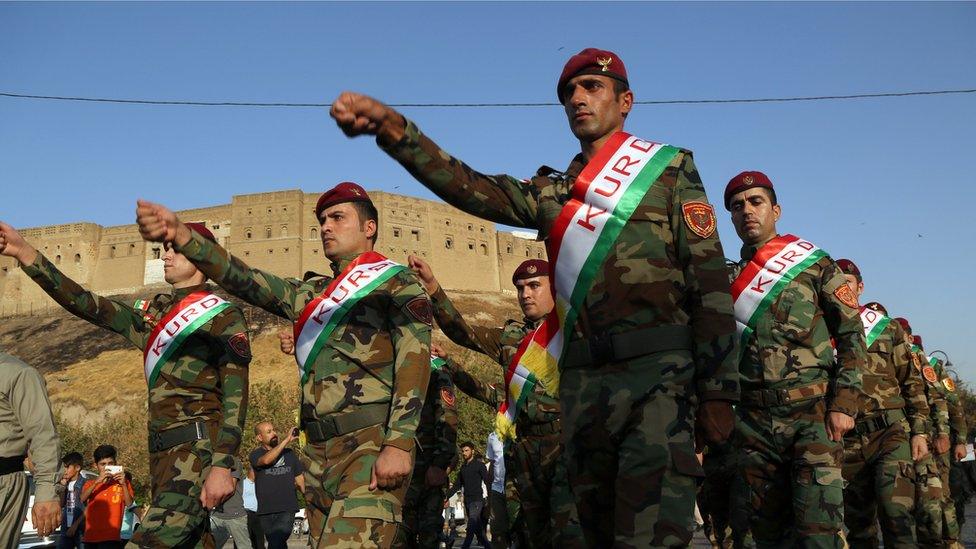
Marches in support of the vote took place in Irbil last week
Iraqi Prime Minister Haider al-Abadi has formally demanded the suspension of next week's referendum on Kurdish independence.
The Supreme Court also ordered that the poll must be postponed until questions over its legality were addressed.
Despite global opposition, the Kurdistan Regional Government backed the 25 September vote on Friday.
Iraq cannot enforce its demand for a suspension, however, and Kurdish leaders are expected to ignore it.
Neighbouring Iran and Turkey - which both have Kurdish populations - also fear a Yes vote will bolster separatist movements in their countries.
Turkey started military exercises near its border with Iraq, and Prime Minister Binali Yildirim has warned the country will respond to any potential threats.
"Those who are chasing dreams in Syria and Iraq, those who try to establish artificial states in that region should be well aware that any attempt that threatens our national security, from inside or outside our borders, will be immediately met with the necessary response," he said.
The US, the UK and the UN have also been among those voicing strong objections to the referendum.
There are concerns the vote will provoke further instability in the country and hamper the battle against the Islamic State (IS) group.
Iraqi Kurdish leader Massoud Barzani has insisted the plans will go ahead but even among Iraqi Kurds there are divisions. The Change Movement, the main opposition party, boycotted the parliamentary session, saying it believed in independence but rejected holding the referendum at this stage.

No immediate breakaway
by Sebastian Usher, BBC Arab Affairs Editor
Iraq's top court says the referendum in the semi-autonomous region of Kurdistan cannot be held until its legal validity has been established. It says it has received several complaints that the vote is unconstitutional.
The court cannot, however, enforce a ban of the vote.
Kurdish leaders say that whatever the result, it will not mean an immediate breakaway from the rest of Iraq.
It has long been a dream of Kurds to have their own state. But fierce opposition from neighbouring countries, and the wider world, has stood in the way.

UK Defence Secretary Michael Fallon is meeting Iraqi Kurdish leaders in Irbil to try to persuade them to suspend the vote.
"We are committed to the integrity of Iraq," he said at a press conference in Baghdad earlier in the day. "We are working with the UN on alternatives to this referendum."
Israel is the only nation to have openly supported the independence bid.
The United States and other Western nations are backing a UN-supported "alternative" plan for immediate negotiations on future relations in exchange for dropping the referendum.
Iraqi Kurdish leader Massoud Barzani spoke to the BBC
Kurds are the fourth-largest ethnic group in the Middle East but they have never obtained a permanent nation state. In Iraq, where they make up an estimated 15% to 20% of the population of 37 million, Kurds faced decades of brutal repression before acquiring autonomy following the 1991 Gulf War.
For the past three years, Kurds across the region have been engaged in the battle against IS.
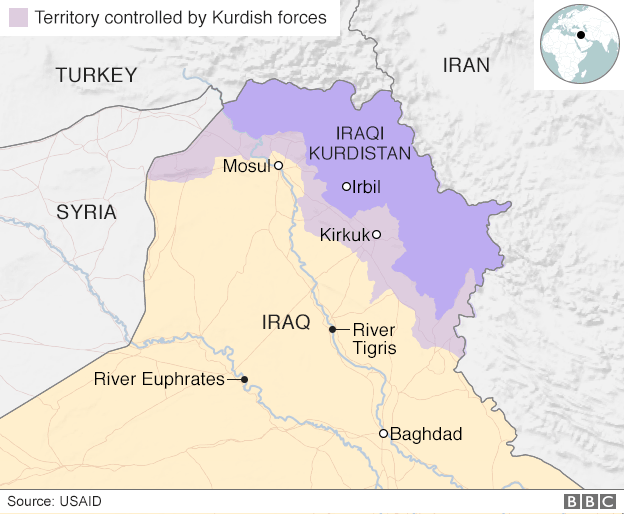
Three months ago, top officials and political parties in the Kurdistan Regional Government agreed to hold an advisory referendum on independence.
Voting is meant to take place in the three provinces that officially make up the region - Dahuk, Irbil and Sulaimaniya - and "areas of Kurdistan outside the region's administration", including Kirkuk, Makhmour, Khanaqin and Sinjar.
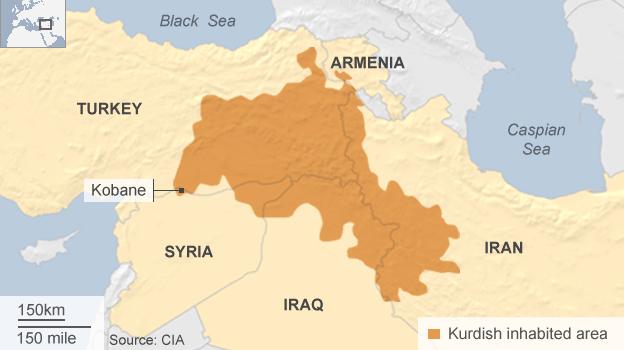

Are you affected by the issues in this story? Email haveyoursay@bbc.co.uk, external.
Please include a contact number if you are willing to speak to a BBC journalist. You can also contact us in the following ways:
WhatsApp: +44 7555 173285
Send pictures/video to yourpics@bbc.co.uk, external
Tweet: @BBC_HaveYourSay, external
Text an SMS or MMS to 61124
- Published18 September 2017
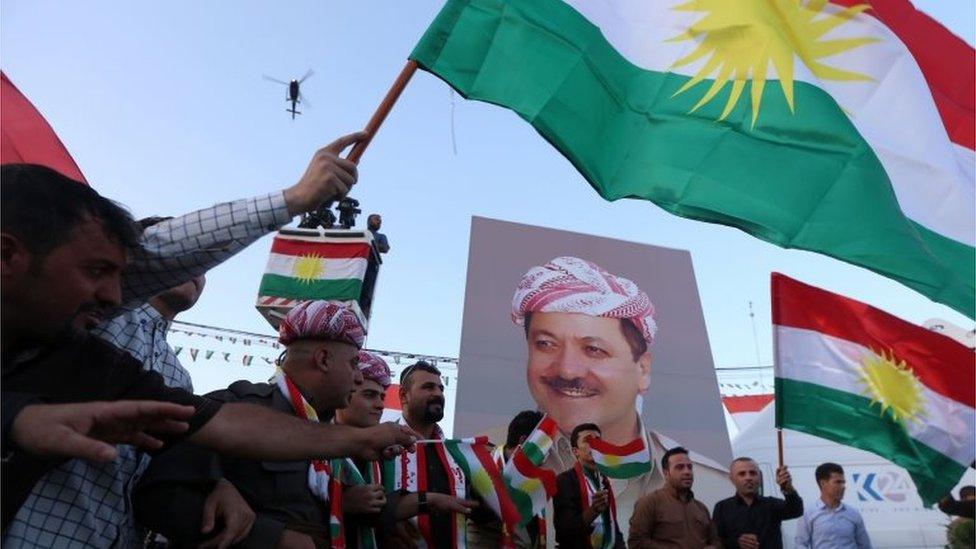
- Published11 September 2017
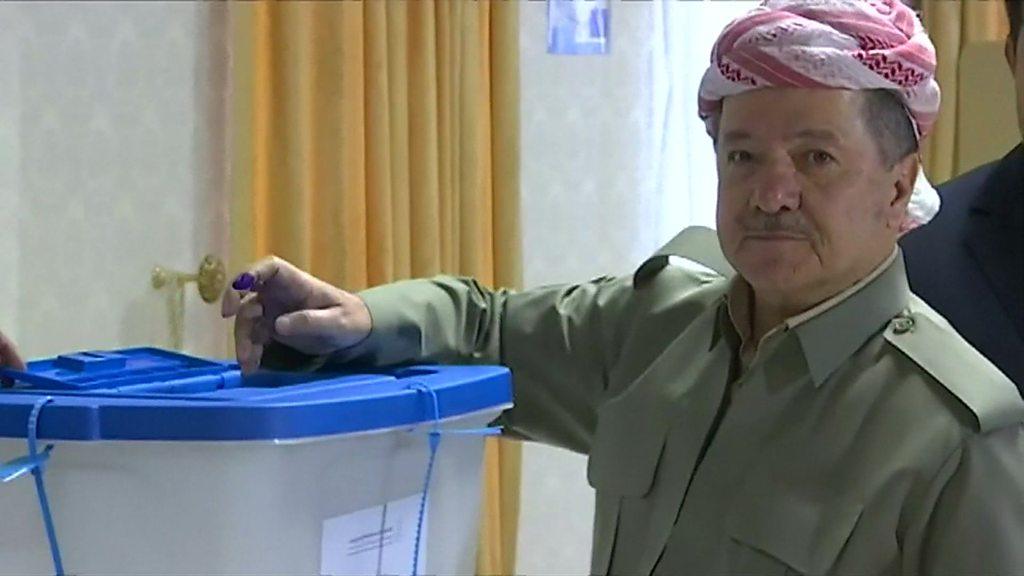
- Published16 May 2016
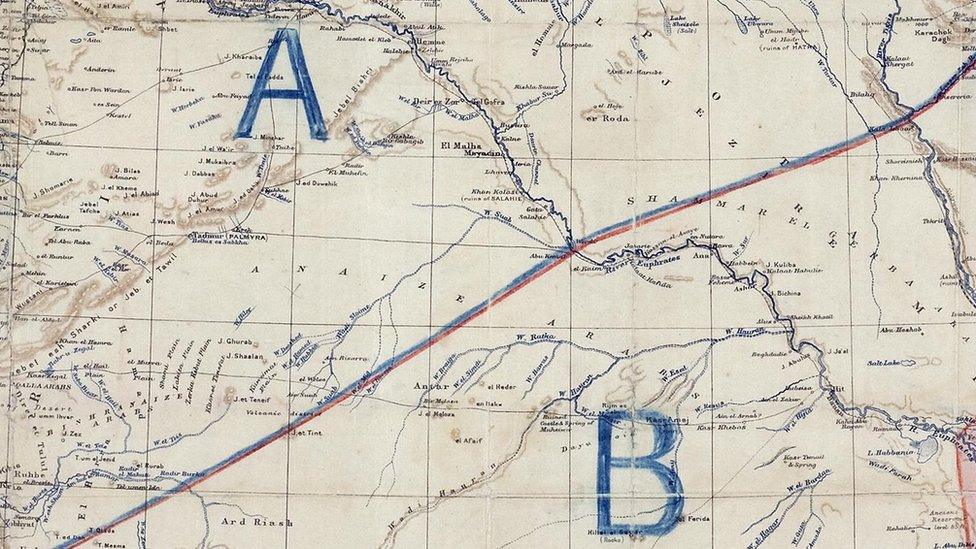
- Published13 June 2014
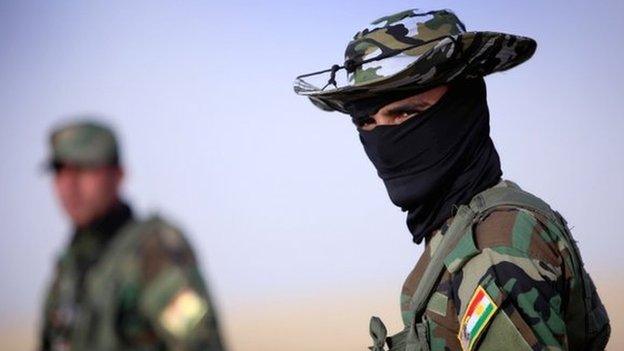
- Published15 October 2019
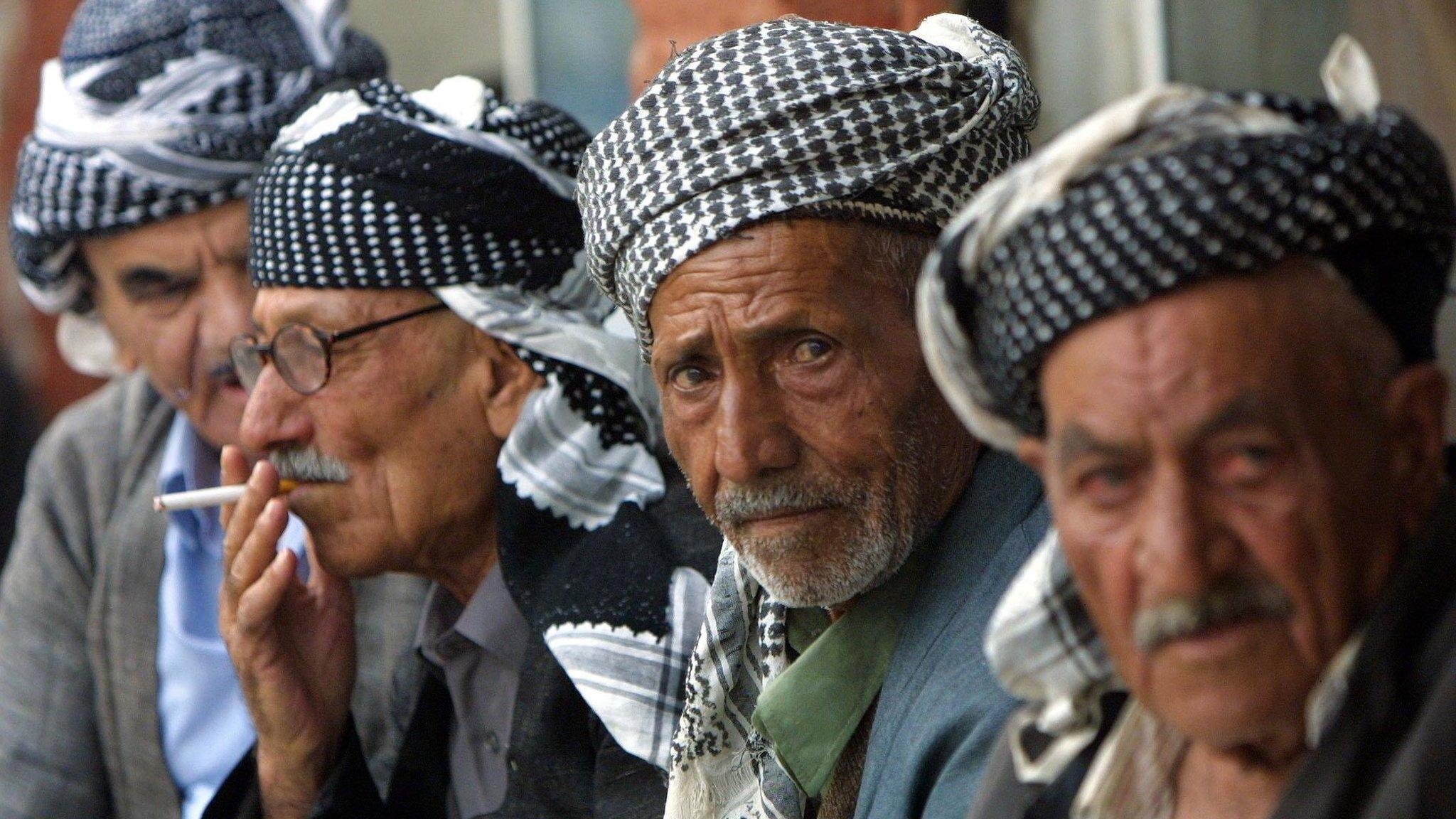
- Published31 October 2017